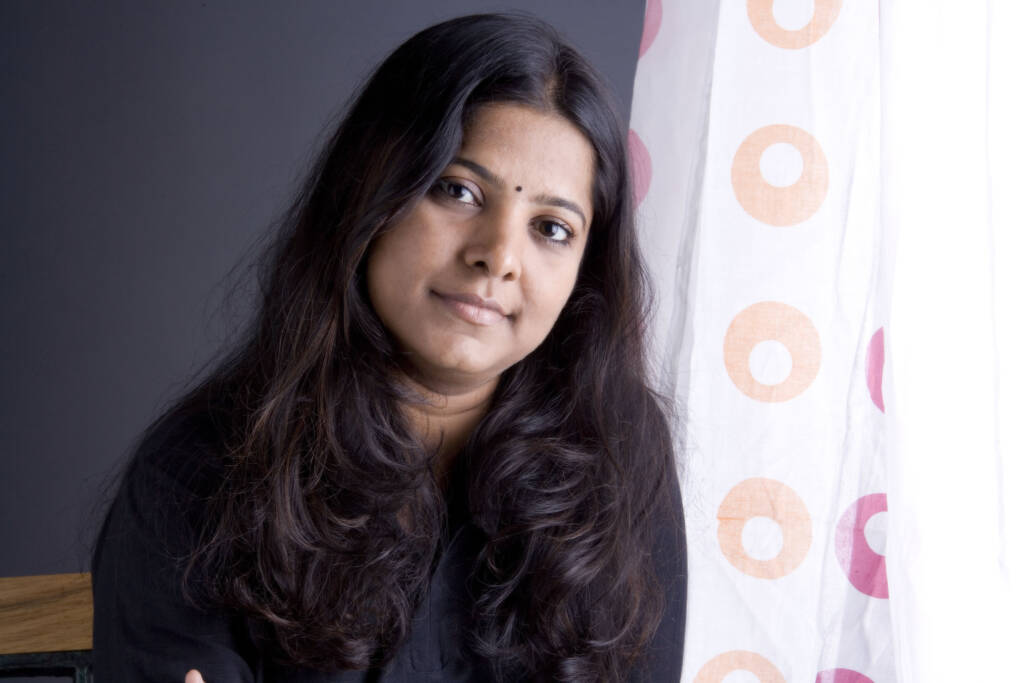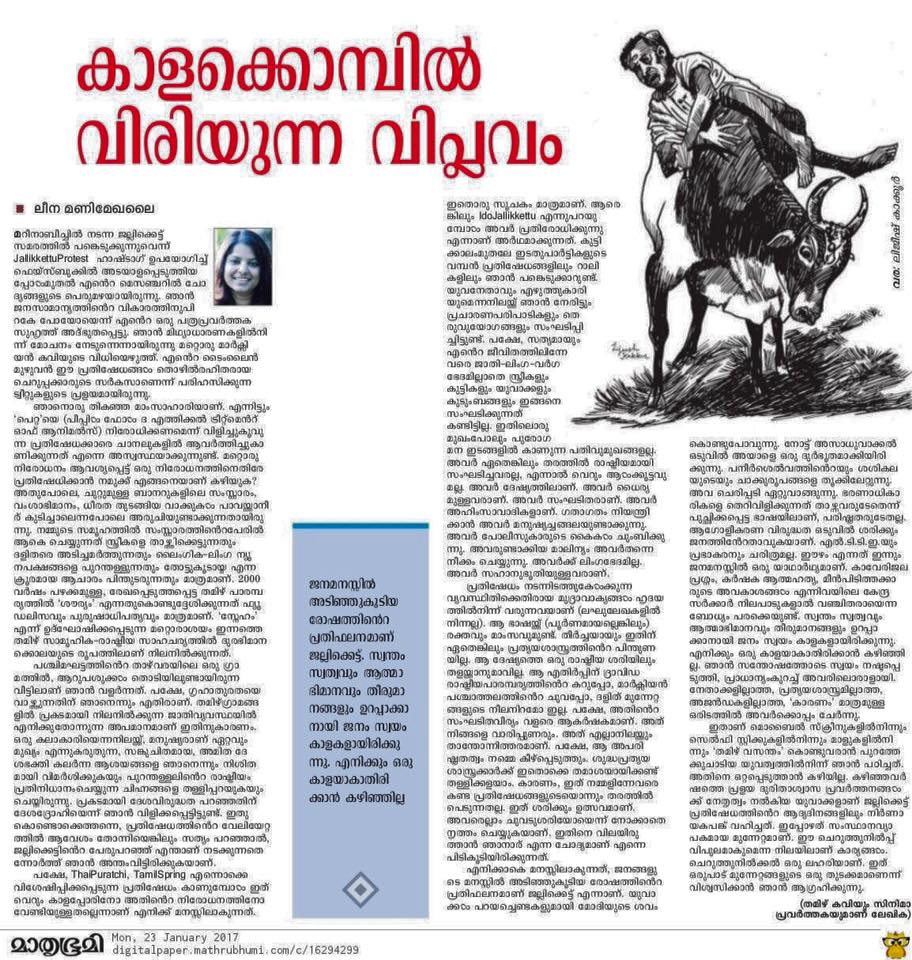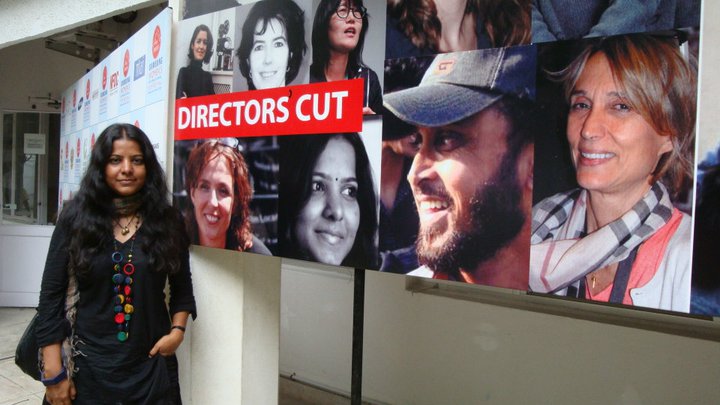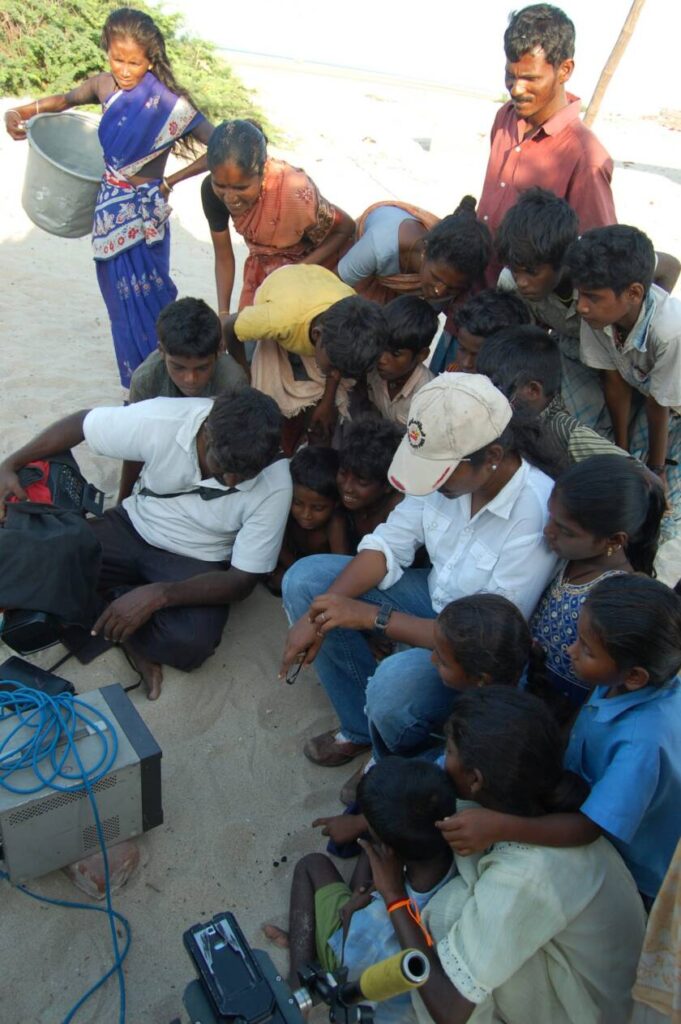Films on Lankan war in stormy seas
March 14 2017 10:33 PM
By Gautaman Bhaskaran
The civil war in Sri Lanka was a bitterly fought one between the minority Tamils and the majority Sinhalas. The Tamil-speaking population – which has its sympathisers in the people of Tamil Nadu, bound as the two are by a common language – was demanding a separate homeland in the northern parts of Sri Lanka. For 30 years, the two communities battled, ruining the economy and causing unimaginable suffering among the common people. In the end, the Tamils lost, and their leader, Vellupillai Prabhakaran, who headed a militant organisation called Liberation Tigers of Tamil Eelam (LTTE), was brutally shot dead by the Sri Lankan army. The strife in terms of human displacement with one million Tamils now living outside their homeland, is only comparable to World War II.
But while so many films have been made about the Holocaust and the Nazi atrocities on Jews – with six million of them being killed in gas chambers – not many movies have been made on the Sri Lankan conflict. The most important reason is the intense hostility towards any such film – both from the Tamils in India and the Indian authorities. While the Tamils imagine every movie on the subject to be pro-Sinhala, the Central Board of Film Certification in India feels that any work even remotely talking about the Sri Lankan issue has the potential to create communal disturbance. Outside officialdom, Indian extremist groups are always targeting such cinema.
The famous Lankan auteur, Prassana Vithanage’s With You Without You – a really touching drama about a Sinhala soldier-turned-pawn-broker who marries a Tamil girl – was stopped from being screened in Chennai at the eleventh hour by Tamil chauvinists, who felt that the movie was pro-Sinhala. It was not. By no stretch of imagination, I would say.
Another film fighting it out is Sherine Xavier’s Muttruppulliyaa (Is It A Full Stop?). This is a 105-minute documentary that narrates the true story of a Tamil Tiger rebel who has a hard time raising her three children after the war ends in 2009. Her husband had been captured by the Lankan army.
The protagonist’s agony has been detailed in all its stark brutality in a movie which also explores the horrid plight of hundreds of women desperately searching for their missing husbands. There is a lot of real footage with recreated sequences.
The documentary was ready in 2015, but it took years for Xavier to get an Indian censor certificate. Exhibition in Sri Lanka is out of the question. Now armed with Indian rights, Xavier’s search for a distributor has begun. There is none to be seen even on the horizon, for theatres know that they will receive threats from fringe groups once a release date is announced. No cinema is willing to see vandalism on its premises.
Another fiery filmmaking activist is Leena Manimekalai. In 2003, she began making documentaries, and it was one such project which took her to Dhanushkodi – on the island of Rameswaram – that was wiped out during a severe cyclone in the early 1960s.
“I thought I would do a documentary on Rosemary, a character who appears in my fiction feature, Sengadal (2011)”, Manimekalai told me in the course of a chat in Chennai. “I began my project in 2009 – the year the 30-year ethnic war in Sri Lanka ended. I had been a part of the Tamil resistance movement in Chennai. I will call myself pro-Tamil, but not pro-LTTE. So you find yourself in a no-man’s land, and you are at once seen as an enemy.”
This is one reason why Sengadal or Dead Sea attracted problems. “But I was fascinated by the stories of Sri Lankan Tamils who had suffered at the hands of both the country’s predominantly Sinhala military and the dictatorial attitude of the LTTE. One of them, Rosemary, was the widow of a Tamil fishermen who was killed by the Sri Lankan Navy. She then landed in the refugee camp at Dhanushkodi. There are 300 families there even today. And Rosemary helped me discover the distraught families. When I found that each one of them had a story to say, I decided that I must cross over to the realm of fiction to narrate something powerful. Sengadal happened,” Manimekalai said.
She had a massive issue with the Censor Board before Sengadal got a screening certificate. But, of course. She wondered why when there are so many movies on the Nazis and Jews, we should be so touchy about the Sri Lankan Tamils. A million of them were displaced during the war, and there are so many stories to be told about them.
Sengadal, Prasanna Vithanage’s With You Without You and Jaques Audiard’s Dheepan – which won the Palm dÓr last year at Cannes – are perhaps three of the very few films on this subject.
Manimekalai is planning two movies – one on the controversial Kerala poet, Kamala Das (whose conversion to Islam caused a lot of ill-feeling towards her), and the other titled Sunshine – a story about the tragedy of the cargo ship, Sun Sea, which sailed with 492 Sri Lankan Tamils from Thailand to Canada, but was not allowed to dock. A lot of people died. The year was 2010, and there was a lot of worldwide suspicion about Sri Lankans. It was assumed that most of them were LTTE rebels.
Be that as it may, Manimekalai seems all set to sail on one perilous journey after another, passionate as she is with opening the Pandora’s Box of heart-wrenching tales of simple suffering folks from an island nation.
Leena Manimekalai To Produce & Act In Another Kamala Das Biopic
BY VANDHANA ON MARCH 3,2017
https://silverscreen.in/tamil/news/leena-manimekalai-to-produce-act-in-another-kamala-das-biopic
Poet and filmmaker Leena Manimekalai plans to make an independent movie on the life and times of legendary poet Kamala Das. Leena took to her Facebook account to reveal that director Kamal, who has announced a Malayalam biopic of Kamala Das, had originally asked Leena to play the lead role in the project.
She said, “The life of a poet is not that interesting a topic for cinema. But, Kamal wanted to make a film that was suitable for Malayalam movie audiences. To this end, I sent him a script that I’d written with my translator friend, Ravi. Kamal felt that it was radical, and asked me to tone down the script to make it suitable for all audiences.”
Leena was also asked to learn Malayalam to play Kamala Das in Kamal’s film. “He told me I looked just like Kamala.”
But once the film became a big-budget project, Kamal apparently told Leena that she had been replaced with actress Vidya Balan.
A beauty’s blog creates furore
April 10, 2012
By Lakshmi Krupa
Deccan Chronicle
Tags:
blogs, freedom of speech, internet, Leena Manimekalai, poetry
https://cis-india.org/news/beauty-blog-creates-furore
Her first Tamil poetry anthology Otraiyilaiyena (As a single leaf) saw three editions and the second one Ulagin Azhagiya Muthal Penn (The first beautiful woman in the world) invited mixed reactions like Iyal Poetry Award and a call for a ban by Hindu Makkal Katchi. Parathaiyarul Raani (Queen of sluts) her third collection was a reaction to all the moral policing.While her film Sengadal The Dead Sea was stopped from being screened to the public, until the Supreme Court’s Appellate tribunal intervened with regional censor board for the film clearance, groups like the Makkal Kalai Ilakiya Kazhagam attacked her beliefs. Adding to this list is the latest revelation that the Principal Secretary of IT Department of the Tamil Nadu government requested that her blog be blocked along with a host of others.
In a text sent from A.K. Kaushik, Additional Director & CPIO Cyber Laws & E-Security in response to an RTI petition on Website Blocking, it was reported that Leena’s bloghttp://ulaginazhagiyamuthalpenn.blogspot.com was requested to be blocked on 21.07.2010 by the Principal Secretary, IT Department.
This recent revelation has led to an outrage over the fact that artists and activists like Leena have had to constantly knock on the doors of the legal system to exercise the most basic of their rights.
In an interview from London where she is currently the Charles Wallace Visiting Scholar at the University of London, Leena says, “Center for Internet and Society in Bengaluru that works towards upholding Civil Liberties Online, had obtained a list of all websites that were sought to be blocked by Governmental authorities with the use of Right to Information Act.They sent me all the details on how my blog was one amongst them as the Principal Secretary, IT Department, Govt of TN had asked for it to be blocked. As the Internet’s role in free speech becomes increasingly prevalent, tactics to control the Internet are growing more refined each year. Methods of accessing private data and censoring content vary between countries, but all maintain an element of oppression. We, who are concerned about civil liberties should wake up to the secret missions of our government on Internet Censorship and protect freedom of speech online.
”Leena’s blog has been in the center of controversies before too.“Hindu Makkal Katchi, the right wing moral police lodged a police complaint to ban my poetry collections and ban my blog ulaginazhagiyamuthalpenn. blogspot.com. They went to every possible media house and were making threat calls and there were discussions on the alleged obscenity in my poems. They even wanted the Iyal International Poetry Prize and Sirpi Literary Awards to be revoked.”
Leena’s poetry challenges fanatic minds.“My poetry has a feminist agenda and it is just not about equal rights for women. It is a socialist, anti-institutional political movement which calls for women to break the code, destroy capitalism, live their sexuality and witch hunt every possible patriarchal design. I am not amused about the fact that my poetry gave jitters to ultra blasphemous right and left wingers,” she concludes.

Times of India Article on Sengadal and Crowd Funding
Small budget filmmakers now woo the masses for money
Vivek Narayanan, TNN Mar 19, 2012, 04.39AM IST
Tags: Shyam Benegal | Onir | Leena Manimekalai | Himanshu Roy | Bollywood
CHENNAI: It was Bollywood that introduced the concept of crowd funding in India, making the audience direct stake holders in movie production. Now it is taking roots in Kollywood. Leena Manimekalai, an independent filmmaker is planning to gather funds for distribution of her movie ‘Sengadal’ from the public.
In Bollywood, director Onir was the latest to have tried crowd funding to raise 1 crore for his film ‘I Am’. There were others before him – Himanshu Roy who used unorthodox methods to raise finance for his films and Shyam Benegal whose movie ‘Manthan’ was funded by dairy farmers in Gujarat.
Manimekalai took the decision after she found it difficult distributing her movie. “Making a film is just half done and outreach is the most challenging task for independent filmmakers like me,” she says. “Sengadal could have been impossible as its content is not dictated by the market. When it came to distribution, I was able to fight the state against a ban, but the market is such a brutal force out here and it doesn’t want any independent voice to exist,” says Manimekalai.
Even after earning international acclaim, the film was not able to reach the masses.
For gathering funds from the public, these directors consider social networking sites as a good platform. “Social networking is an excellent medium for independent artists like me. My online presence has already given me a database of my audience and I just need to persuade. ” says Manimekalai.
It is often the small budget movies that struggle to see the light of the day. “Movies with big stars don’t finAd it difficult to find producers, distributors or financiers. But it is not the same case with independent cinema. I prefer doing films that I like, but I do not get funds from the industry. Hence I decided to try out different modules instead of traditional financing,” says Onir.
He found likeminded people on social networking sites and requested them to fund his movie ‘I Am’. “Three days after I posted my request, people started sending money,” he says. But do the audiences get a share of the profit? “Some give it as a donation as they identify with the film’s content. Others, who fund more than Rs 1 lakh, get a share from the profits.”
Making a film is just half done and outreach is the most challenging task for independent filmmakers like me. Sengadal could have been impossible as its content is not dictated by the market.





